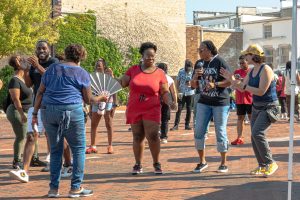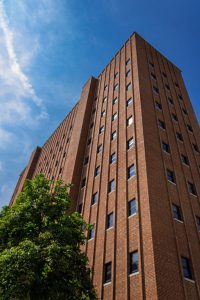SAMTB eyes new bus fleet
January 17, 1991
A brand new fleet of buses over the next five years would best serve the students despite higher student fees, the Student Association Mass Transit Board decided at an emergency meeting during finals week.
However, the meeting was unofficial because only four of 12 voting members showed up, while an official meeting needs at least six members.
Most members had already left for semester break, said Mass Transit Executive Director Todd Allen. “There was a flurry of activity to get things together really quick,” he said.
Allen said the board would not officially approve the plan until the Jan. 28 meeting. From there, the President’s Fee Study Committee and the Board of Regents will have to approve the bus purchases.
Allen said the board talked about different options that included buying four, six or 13 buses during the next five years. All the new buses would have lifts for students in wheel chairs.
Board members decided to replace the whole fleet with 13 lift-equipped buses would be the best plan.
The American Disabilities Act will require NIU to have lifts on the buses in six or seven years, said Co-vice Chairman Richard Parkman, who added that the nearly 20-year-old buses need to be replaced no matter what option the board picks in two weeks.
“We have a chance to become a leader in the forefront of handicapped services,” Parkman said.
And the students will have to pay for all of it.
Huskie Line Director Charles Battista estimated the buses would cost from $125,000 to $175,000 each, and Allen said the wheelchair lifts would add $15,000 to each cost.
Though exact figures have not been decided, board members are suggesting a 15 to 20 percent increase in the student busing fee next year. A 20 percent increase would add about $10 to the $45 a 15-credit student pays now.
Fee increases also would be expected during the next four years to pay for the buses, Parkman said.
Board member Henry Treftz said buying all new buses over five years would be the most gradual way of following standards of the American Disabilities Act.
“It wouldn’t be ethical for us, after we’re long gone, to shock students in four years with a fee increase that would be astronomical,” Treftz said.
The emergency meeting was requested by University Programming and Activities Director Michelle Emmett in an effort to put a fee proposal before the Board of Regents this month. However, Emmett decided to wait until the BOR meeting in March.
“It was very rushed and last minute. We didn’t have all the information,” Emmett said. “This way we can follow the proper procedures all the way through.”






